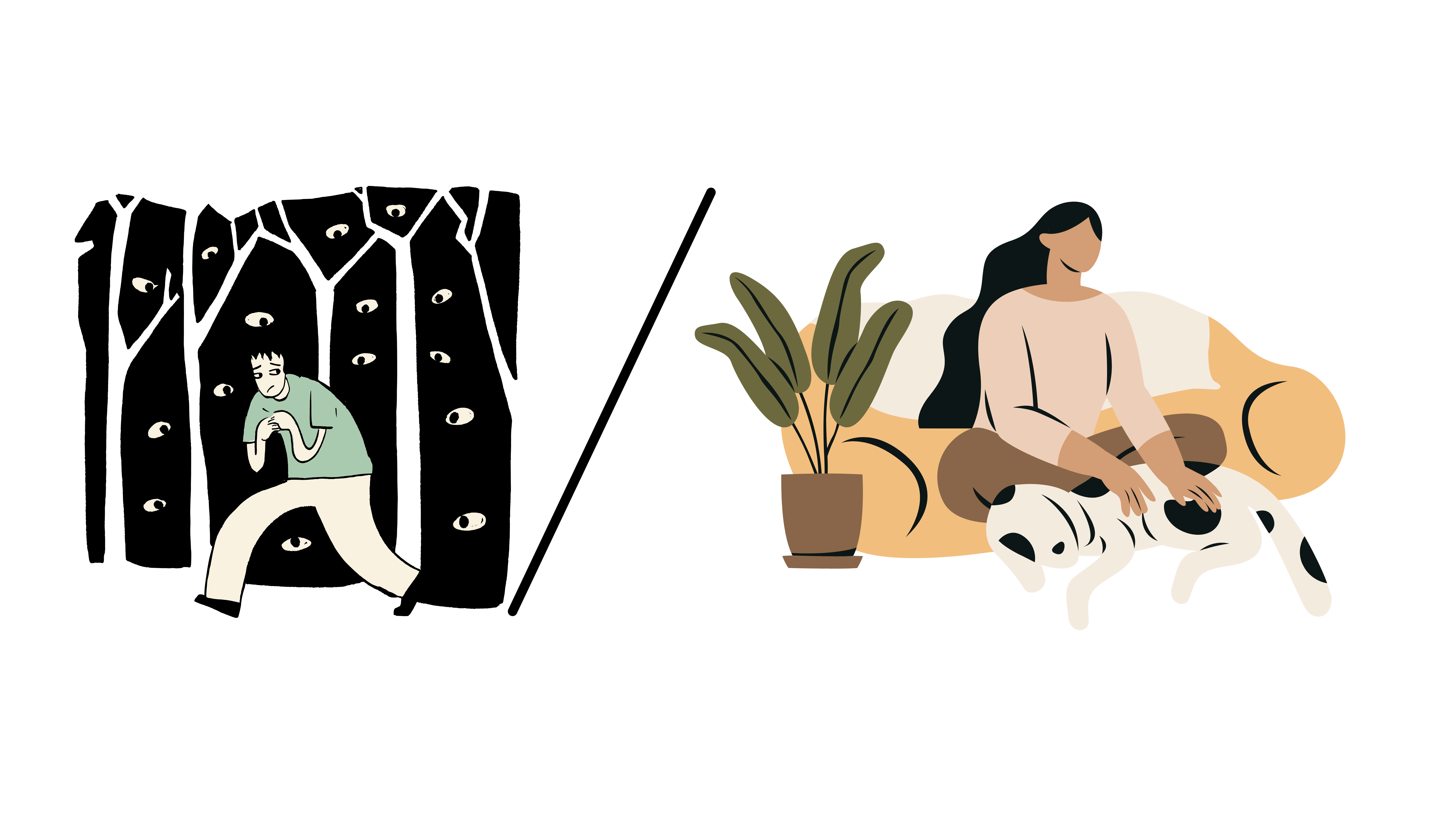
Social Anxiety vs. Introversion
To most people, social anxiety and introversion are synonymous. If one describes a person as an introvert, it’s quite easy to assume that person is socially awkward, dislikes social occasions, is shy, quiet, and lacks self-confidence.
It’s understandable why people mix the two up. A lot of the behaviors and preferences associated with introversion and social anxiety seem similar on the surface. However, to truly understand someone, what kind of person they are, what they enjoy or fear, what they value, it is important to understand the distinction between these two terms.
Social anxiety is a mental health condition that involves an intense and persistent fear of social situations, not because the person dislikes people, but because they fear being judged, embarrassed, or humiliated in front of others. People with social anxiety may avoid social gatherings or even everyday interactions out of this overwhelming fear.
Introversion, on the other hand, is simply a personality trait, a preference for the inner world of thoughts and feelings over the outer world of activity and stimulation. An introvert may enjoy spending time alone or with a small group of close friends, not because of fear, but because that is where they feel most comfortable and recharged.
Let’s dive a little deeper into these two terms.
What is Social Anxiety?
"Arjun dreads attending meetings at work. He constantly worries that he'll say something wrong or be judged by his colleagues. Even after a brief conversation with a coworker, he replays the interaction in his mind, criticizing himself. Although he wants to connect with others, his fear of embarrassment or being perceived negatively keeps him from socializing."
Do you enjoy spending time alone or do you actively fear being surrounded by people? This is one of the clearest ways to distinguish between introversion and social anxiety.
Social anxiety disorder is a mental health condition where one feels consistent fear of being watched or judged or being negatively considered by others in social situation. To break it down further, social anxiety is characterized by:
- Persistent fear of being watched, judged, or negatively evaluated by others.
- Avoidance of social situations or enduring them with intense fear or discomfort.
- Physical symptoms such as sweating, trembling, blushing, nausea, or a rapid heartbeat in social settings.
- Excessive worry before, during, and after social interactions, often overthinking how one was perceived.
Situations which trigger social anxiety can range from having to meet new people, making small talk with strangers to attending a job interview and public speaking.
The causes of social anxiety can vary from person to person. There are many causes of social anxiety which are detailed below:
- Genetics: A family history of anxiety disorders can increase your risk.
- Brain chemistry: Imbalances in neurotransmitters such as serotonin can contribute.
Life experiences: Bullying, rejection, trauma, or over-critical parenting can trigger or worsen the condition. - Learned behavior: Growing up in an overly cautious or socially avoidant environment can shape these patterns
The cause for the presence of social anxiety in one’s life is usually the combination of above-mentioned causes. From a therapeutic perspective, it is imperative to assess the disorder by considering all of the above-mentioned causes.
What is Introversion?
"Riya enjoys spending time alone after work to recharge. She has a small circle of close friends she loves hanging out with, but after attending a company party, she feels mentally drained and needs a quiet weekend to recover. She doesn't avoid people out of fear, she simply prefers meaningful one-on-one conversations over loud social events."
Introversion is a natural personality trait, not a mental health condition. It’s simply a preference for solitude or one-on-one interaction, meaningful conversations over small talk and/or deep thinking and self-reflection. Whereas extroverts as understand the world around them and their feelings by communicating with others and exploring the world around them, introverts understand the world and their feelings through introspection, diving deep into one’s emotions.
According to a study by Grimes et al. (2011), there are four domains of introversion:
- Social Introversion: Preference for smaller groups or solitude over large gatherings.
- Thinking Introversion: A rich inner life of thoughts, imagination, and self-reflection
- Anxious Introversion: Self-consciousness or awkwardness in social settings, sometimes mistaken for social anxiety.
- Inhibited Introversion: Acting cautiously, thinking before speaking or taking action.
It’s important to understand that introversion is not the result of fear or trauma. As mentioned earlier, introversion is not a mental health condition, it’s a personality trait. It doesn't require treatment because it isn’t something that needs to be "fixed". A common misconception is that introverts dislike socializing. In reality, many introverts do enjoy connecting with others but tend to need time alone to recharge afterward. That said, in certain situations, learning specific social skills, such as making small talk, networking, or expressing oneself more confidently, can help introverts function in social settings more comfortably and effectively, especially when those interactions are necessary or important.
If you find that your social discomfort feels overwhelming or prevents you from participating in everyday life, or if you are an introvert struggling to navigate social environments without feeling drained or disconnected, you’re not alone and support is available.
Happy Minds offers professional counseling services that can help you better understand your personality, build coping strategies, and work through social anxiety. Whether you're navigating anxiety in social situations or learning how to function more confidently as an introvert in a socially demanding world, our trained counselors are here to support you.
Reach out to Happy Minds at +977 9801031443 to book a confidential session today. Let’s take that first step toward better mental well-being together.
Author: Karmendra Prakash Shrestha
